news
Update : FG cuts power firms from national grid for non-adherence to the Electricity Market Rules

 The Federal Government, on Tuesday, declared that it had commenced the disconnection of some power firms from the national grid as a result of their non-adherence to the Electricity Market Rules.
The Federal Government, on Tuesday, declared that it had commenced the disconnection of some power firms from the national grid as a result of their non-adherence to the Electricity Market Rules.
Although it did not name the affected power plants, the government explained that the Nigeria Electricity Supply Industry was governed by rules, which were absolutely necessary for the viability and sustainability of the sector.
These rules, according to the Federal Government, were sacrosanct and must be complied with by all existing or new players in the sector.
Power sector players include the electricity generation, transmission, and distribution companies. For all players to interact effectively and create the requisite harmony for growth, efficiency and profitability of the sector, the rules must be obeyed and upheld, according to the government.
“Some of these rules are domiciled with the Market Operator, but today, adherence to the Market Rule is below expectation,” the Market Operator, an arm of the Federal Government’s Transmission Company of Nigeria, Dr Edmund Eje, said in a statement issued in Abuja.
He added, “NESI market indiscipline is one of the major factors dealing a disastrous blow to the scalability and growth of the market.
“Market Participation Agreement is signed by all participants, but to comply with them is usually an uphill task for many. If the rules of every game are observed, there would be no need for sanctions.
“Currently, the Market Operator – TCN, is embarking on sanctioning erring market participants, having given them notices and time to comply with the market rules. One of the fallouts of the sanctions will be the partial or complete disconnection of defaulters from their point of connection to the grid.”
Eje said it was natural that some of the sanctioned players might attempt to politicise the action to score cheap points and whip up unnecessary sentiments, but cautioned that people should be sensitive to the real issues, which was efficiency and survival of the NESI.
For clarity, he outlined the procedures being taken by the government, through TCN, before suspending or disconnecting a power firm in the market.
He said notification of non-compliance would be issued first, as this had to do with when a participant violated the market rules or failed to pay amounts due to the Market Operator.
“Notice of intention to suspend is then sent. If the participant fails to comply with the notice, the Market Operator may issue a notice of intention to suspend a participant’s access to the market.
“This notice will specify the reasons for the intended suspension, the proposed duration of the suspension, and the conditions for lifting the suspension. This is followed by an opportunity to respond, where the participant will be allowed to respond to the notice of intention to suspend and provide reasons why the suspension should not be imposed.
Then the notice of suspension would follow. Here, if the participant still fails to comply with the ‘Notice of Intention to Suspend’, the Market Operator may issue a ‘Notice of Suspension’, which may last for 30 business days after which the MO can escalate the suspension to the Commission for the Business Continuity Regulation to click in,” Eje explained.
news
Alleged Coup Attempt Against Tinubu, Fraud Charges: Sylva Faces Possible Arraignment in Absentia
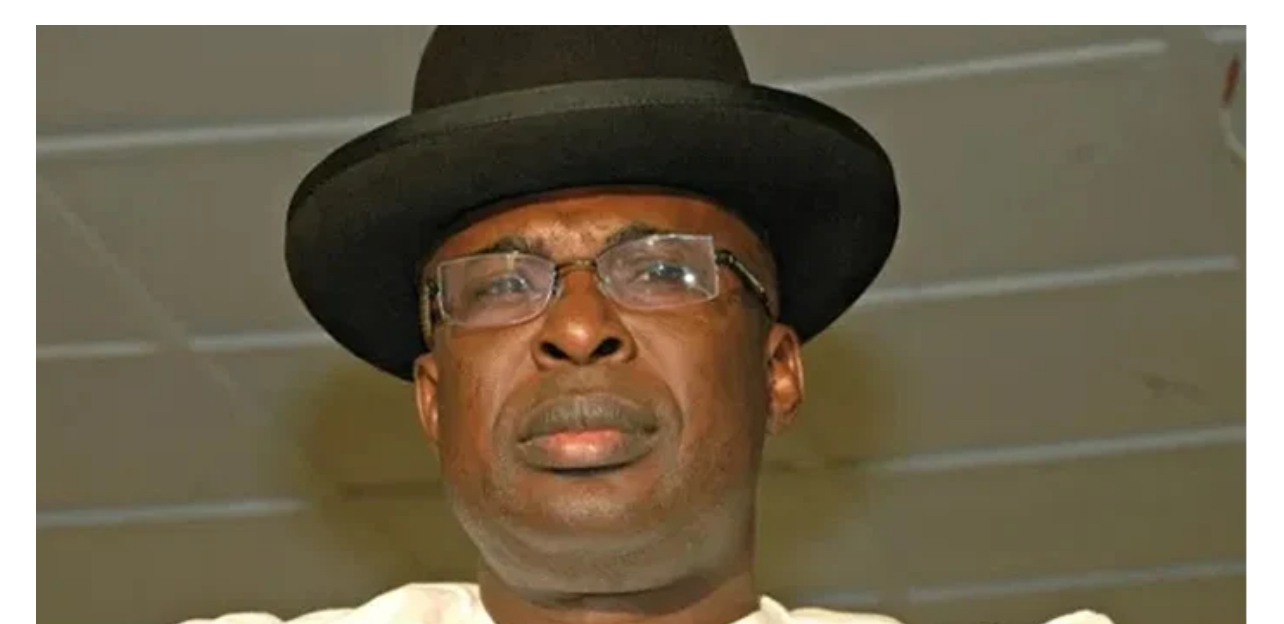
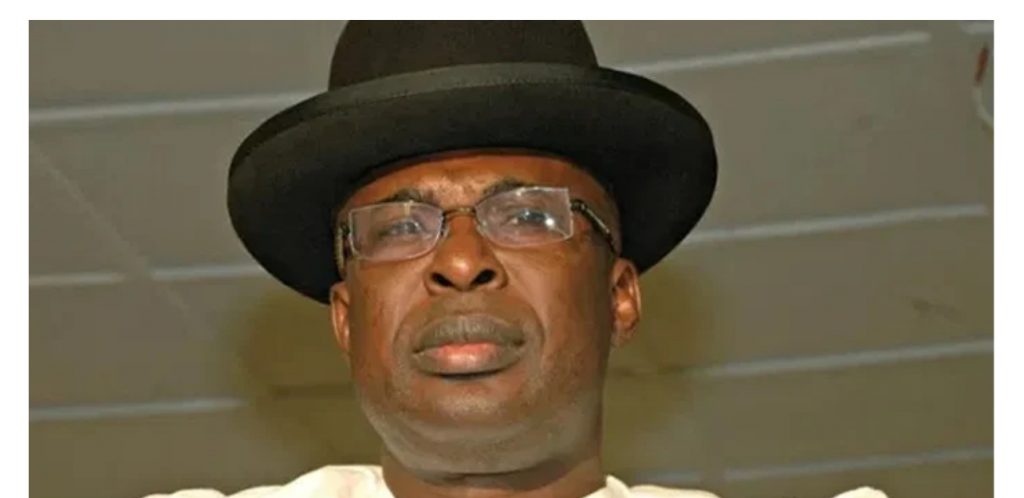
Former Bayelsa State Governor, Timipre Sylva, has yet to return to the country months after his Abuja residence was raided by operatives of the Defence Intelligence Agency.
It was reported that the raid was connected with investigations into the alleged coup attempt against President Bola Tinubu.
Our correspondence gathered that Sylva, who was also declared wanted by the Economic and Financial Crimes Commission over alleged $14,859,257 fraud, might be arraigned in absentia for financial crimes.
Top officers of the Department of State Services and the EFCC told one of our correspondents that the International Criminal Police Organisation and other Nigerian partners in the war against crime were currently trailing the former governor.
The Defence Headquarters had, in October 2025, dismissed reports of a coup attempt, despite the arrest and detention of 16 officers accused of sponsoring the plot.
The DHQ, in a statement by its Director of Defence Information, Brig Gen Tukur Gusau, on October 18, 2025, denied a Sahara Reporters story linking the detention of the officers to a failed coup and the cancellation of the October 1 Independence Day parade.
Gusau described the report as “intended to cause unnecessary tension and distrust among the populace.”
“The ongoing investigation involving the 16 officers is a routine internal process aimed at ensuring discipline and professionalism within the ranks. An investigative panel has been duly constituted, and its findings will be made public,” he said.
However, last Monday, the military backtracked, confirming that there was indeed a plot to topple Tinubu’s administration.
Presenting the outcome of investigations on the detained officers, the new Director of Defence Information, Maj Gen Samaila Uba, said the findings identified several officers with cases to answer over allegations of plotting to overthrow the government.
He said, “The findings identified a number of officers with allegations of plotting to overthrow the government, which is inconsistent with the ethics, values and professional standards required of members of the AFN.”
He noted that those indicted would be formally arraigned before relevant military judicial panels to face trial in line with the Armed Forces Act and other applicable service regulations.
Following the arrest of the 16 military officers, Sylva’s Abuja residence was raided on October 25, 2025, by operatives of the DIA.
Sylva was out of the country at the time his house was raided, but his younger brother, Paga, who serves as his Special Assistant on Domestic Affairs, along with his driver, was arrested during the operation.
Also, the former governor was declared wanted on November 10, 2025, over an alleged case of “conspiracy and dishonest conversion” of $14,859,257, part of funds injected by the Nigerian Content Development and Monitoring Board into Atlantic International Refinery and Petrochemical Limited for the construction of a refinery.
However, Sylva’s Special Assistant on Media and Public Affairs, Julius Bokoru, dismissed reports linking his principal to the coup plot, describing them as baseless and politically motivated.
He described the reports as the handiwork of “desperate and self-seeking politicians seeking to actualise their ambitions ahead of the 2027 elections.”
In a statement, Bokoru condemned the EFCC’s action, noting that the former minister was undergoing medical examination in the UK and would honour the commission’s invitation upon his return to Nigeria.
However, three months after being declared wanted, Sylva has yet to return to the country.
Our Findings revealed that the EFCC had alerted Interpol to facilitate the arrest of the former governor.
Although the Interpol spokesperson in Nigeria, Benjamin Hundeyin, who also doubles as the Force Public Relations Officer, neither answered calls nor responded to messages sent to his phone, top security officers, including DSS and police personnel, said Interpol was involved in efforts to apprehend Sylva.
“Interpol was contacted immediately after the former governor was declared wanted. Apart from the EFCC, the service is also after him. He can’t hide forever. He should submit himself for investigation if he is indeed innocent.
“Nnamdi Kanu was out of the country for a while, thinking he was off the radar. But where is he today? We will also get Sylva,” said a DSS operative knowledgeable about the matter.
Similarly, an EFCC officer, who spoke with our correspondence on condition of anonymity because he was not authorised to speak on the matter, disclosed that Sylva would be arraigned.
“He is still on our wanted list. We are looking for the right time to arraign him. However, investigations are ongoing. We are building our case against him and, when concluded, he will be charged,” the source said.
Asked if the commission would proceed to court before his apprehension, the source said Sylva could be arraigned in absentia.
“It is possible, and the law makes provision for it. However, we have not concluded that this is the option we will take. But legally, it is possible,” he added.
Speaking with one of our correspondents, another EFCC operative urged the former governor to turn himself in.
“When a suspect of such status is declared wanted, all our partners around the world are placed on notice. Wherever he is, he will be traced. The right thing to do is to turn yourself in,” he added.
However, when contacted last Thursday, Sylva’s spokesperson declined to comment on the matter.
“Given the confirmation by the Defence Headquarters, this is now a national security matter. I am not in a position to comment on speculations, travel or investigations. Relevant authorities are best placed to speak when appropriate,” Bokoru said in a text message.
news
Nigeria and Türkiye Agree to Accelerate Trade, Energy and Defence Partnerships, Says Tinubu
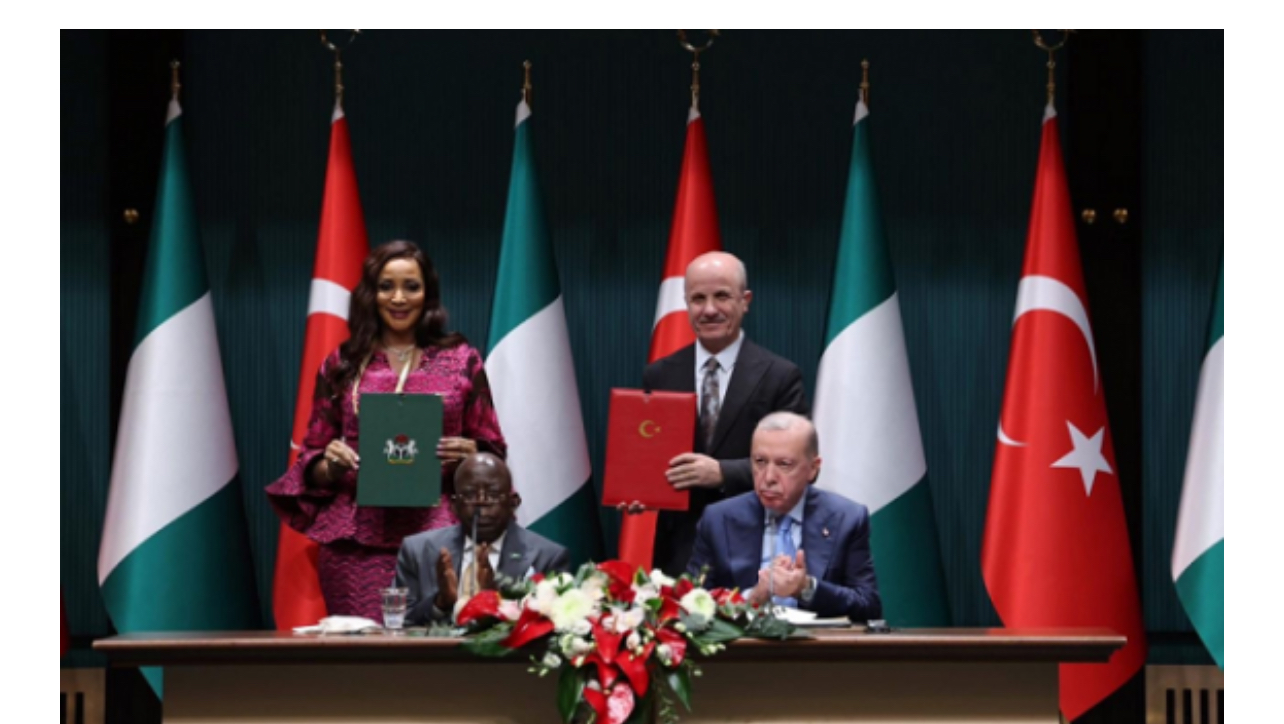
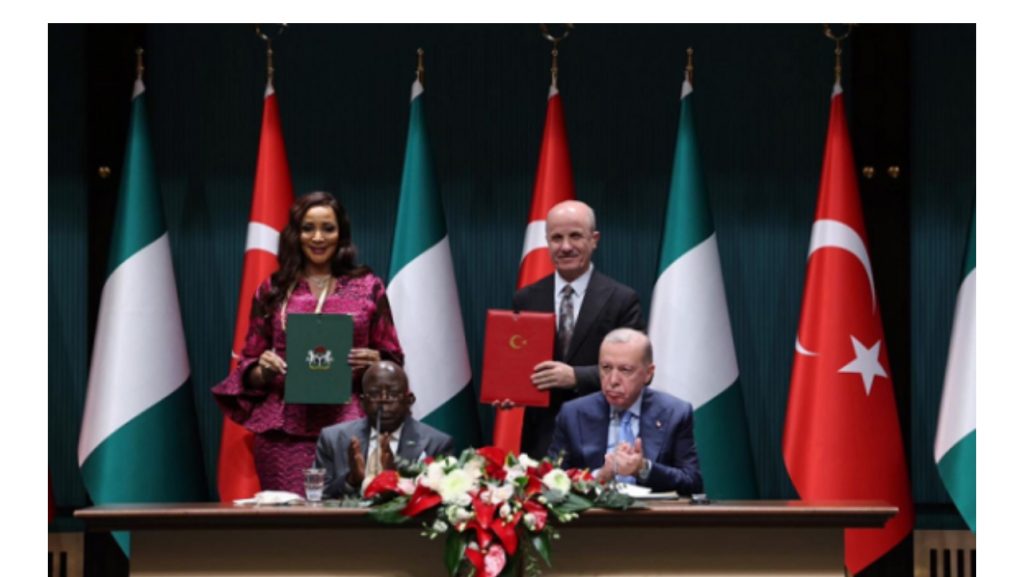 President Bola Tinubu says Nigeria and Türkiye have agreed to fast-track cooperation in trade, energy and defence to boost jobs, investment and shared prosperity.
President Bola Tinubu says Nigeria and Türkiye have agreed to fast-track cooperation in trade, energy and defence to boost jobs, investment and shared prosperity.
The President disclosed this on Tuesday via his official X handle during his ongoing State Visit to Ankara, Türkiye.
Tinubu said discussions with Turkish President Recep Tayyip Erdoğan focused on deepening bilateral relations and delivering tangible economic benefits for citizens of both countries.
“President Recep Tayyip Erdoğan and I reaffirmed our shared ambition, which speaks directly to jobs, investment and opportunity for our people,” the President said.
He said both leaders agreed on the need to expand trade volumes and remove structural barriers limiting business growth between Nigeria and Türkiye.
“We are creating a clear pathway to a five-billion-dollar trade volume between Nigeria and Türkiye,” Tinubu stated.
The President described the talks as practical and forward-looking, driven by mutual interests and shared regional and global responsibilities.
“Our conversations were practical and forward-looking: trade and investment, energy, education, defence cooperation, peace and security,” he said.
Tinubu announced the establishment of a Joint Economy and Trade Committee to drive implementation of agreements and attract fresh investments.
“The creation of a Joint Economy and Trade Committee will unlock new flows of capital,” the President noted.
He said the committee would also support industrial growth, technology transfer and stronger private sector participation.
Tinubu welcomed President Erdoğan’s acknowledgement of Nigeria’s ongoing reforms, especially in the energy and investment sectors.
“I welcome President Erdoğan’s recognition of Nigeria’s reform momentum, particularly in the energy sector,” he said.
The President said the renewed confidence reflected Nigeria’s commitment to transparency, stability and sustainable economic growth.
“We are determined to build an economy that works for everyone, including the most vulnerable,” Tinubu added.
On regional security, Tinubu reaffirmed Nigeria’s responsibility to promote peace and stability across Africa.
“Nigeria will continue to play its role in peace and stability in Africa,” the President said.
He said Türkiye’s expertise in counter-terrorism and defence cooperation would strengthen collective responses to emerging security threats.
“Türkiye’s experience and readiness to cooperate in training, intelligence sharing and counter-terrorism strengthen our resolve,” he stated.
Tinubu said nine bilateral agreements were exchanged at the end of the meetings between both leaders.
The agreements cover defence, education, media cooperation, diaspora policy, trade facilitation, social development and institutional collaboration.
“Nigeria remains open for serious partnership. Open to trade without barriers, ideas, skills and investment that create value and shared prosperity,” he said.
Tinubu reaffirmed Nigeria’s commitment to inclusive growth, peaceful coexistence and active global engagement.
“We are building an inclusive economy. We are strengthening peace. Nigeria will continue to engage the world with confidence and clarity,” Tinubu said.
news
Strengthening Cultural Leadership to Eliminate Violence Against Women and Girls
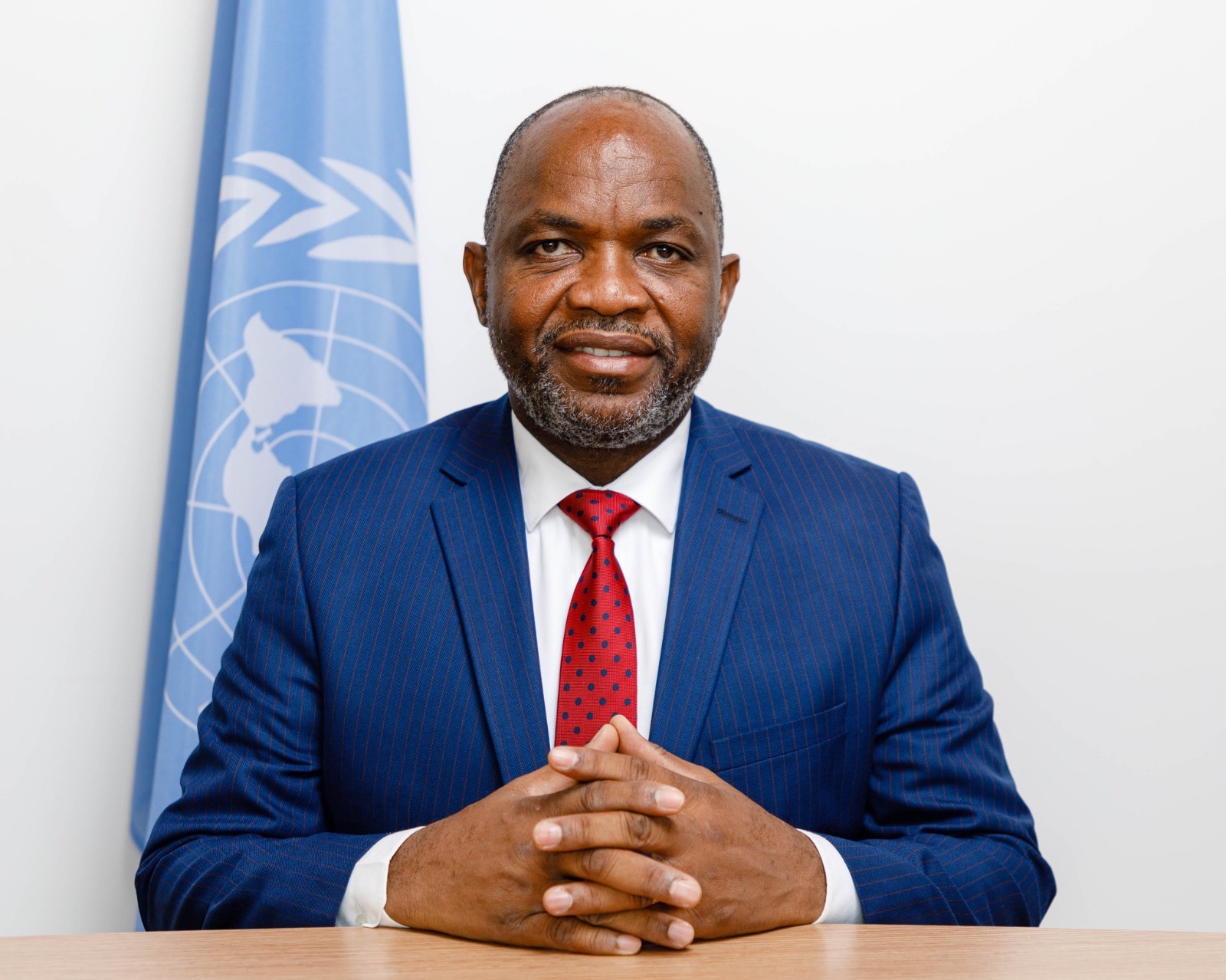
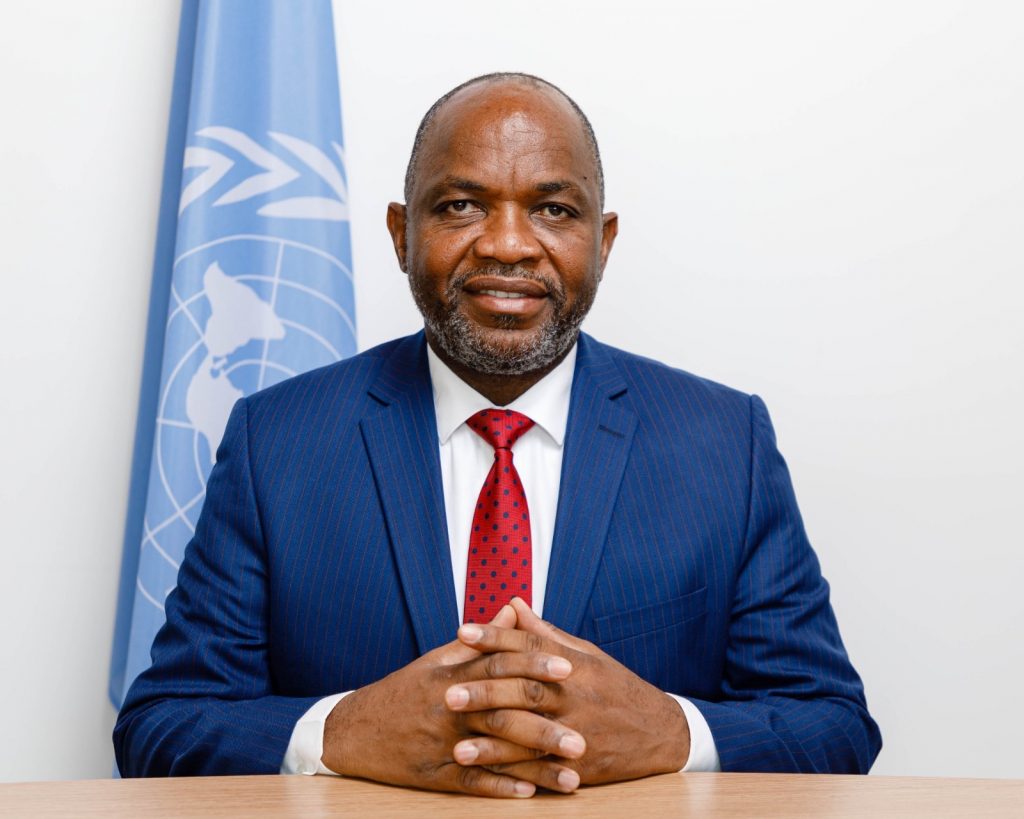
Op-Ed | By Maxime Houinato
As Africa stands at a crossroads in the fight against violence targeting women and girls, the continent’s traditional leaders hold a uniquely powerful key to unlocking lasting change. Their influence—rooted in culture, authority and community trust—positions them not just as custodians of heritage, but as essential partners in redefining norms, protecting rights and leading a continental shift toward safety, dignity and equality for every woman and girl.
In the coming week, traditional leaders from across Africa will meet in Lagos to explore how culture can advance dignity, safety, and equality. Their convening could not be timelier. Violence against women and girls remains widespread, underreported, and a major obstacle to achieving Agenda 2063 and the SDGs. Recent UN and WHO findings confirm that intimate partner and sexual violence persist at alarming levels, underscoring the need for strong, locally led prevention and accountability.
This important convening in Lagos is made possible through the valued support and partnership of the Ford Foundation, whose long-standing commitment to gender justice, human rights, and community-led solutions continues to strengthen efforts across Africa to end violence against women and girls.
Sub-Saharan Africa records some of the world’s highest rates of intimate partner violence, with studies showing that over 40% of women surveyed have experienced emotional, physical, or sexual abuse. Regional data platforms confirm that both lifetime and recent intimate partner violence remain alarmingly common. The effects also span generations: research across 37 African countries links mothers’ experiences of violence to higher risks of illness, undernutrition, and even death among children under five, highlighting IPV as a major threat to child survival and public health.
Where culture must evolve
Africa has made notable strides, yet harmful practices still put millions of girls at risk. West and Central Africa remain the global epicentre of child marriage: nearly 60 million women and girls in the region were married before 18, with Nigeria bearing the largest absolute numbers. These figures, drawn from UNICEF’s databases, remind us that while progress is possible, it is not guaranteed without sustained, community-anchored change.
There are bright spots. In Kenya, the latest Demographic and Health Survey shows FGM prevalence fell to about 15% in 2022, down from 21% in 2014, a testament to policy commitment and local norm change. Yet prevalence remains extremely high among several communities, and sustained vigilance is required to prevent medicalisation or cross-border practices.
Nigerian realities, African momentum
Nigeria mirrors the continental picture: national surveys and administrative data point to widespread physical, sexual and emotional violence, with thousands of cases reported to authorities each year, figures that almost certainly undercount the true burden. The Government’s National GBV Data Collation Tool is an important step toward standardising reporting and improving coordination; scaling it nationwide and linking it to survivor-centred services will save lives.
Encouragingly, the upcoming Conference of African Traditional Leaders in Lagos, already drawing commitments from eminent leaders, signals growing recognition that cultural authority can be mobilised to protect women and girls. UN Women’s work with traditional councils across Africa has shown that when custodians of culture publicly denounce harmful practices, backed by evidence and community dialogue, norms shift and laws gain legitimacy. It is why we helped catalyse platforms like the Council of Traditional Leaders of Africa to champion the abandonment of child marriage and FGM.
Law works best when culture leads
Africa’s legal architecture has advanced. The Maputo Protocol, our continental bill of women’s rights, has spurred reforms, and the African Commission recently moved to develop a Model Law to accelerate domestication and harmonisation across countries. These instruments matter: they provide standards, remedies and budgets. But their power is realised when interpreted through community values that affirm women’s dignity.
Evidence from the Spotlight Initiative, the EU-UN partnership with the African Union, shows that multi-sector, locally-led approaches can reduce harmful practices, strengthen services, and improve prevention. Traditional and religious leaders who champion public declarations, alternative rites of passage, and community bylaws help convert state law into lived practice.
A practical agenda for traditional leaders
I urge traditional leaders to make clear, practical commitments that have been proven to drive change: publicly and repeatedly denounce harmful practices such as child marriage, widowhood rites and FGM, backing declarations with community bylaws aligned with national law; promote survivor-centred justice in customary systems through strong referral pathways, bans on forced reconciliation, and proper case documentation; safeguard girls’ childhoods by ensuring birth and marriage registration, enforcing 18 as the minimum age of marriage, and supporting re-entry to school for married or parenting girls; encourage alternative rites of passage and positive models of masculinity that reject violence; and use their influence to push for stronger laws, adequate funding, and community engagement to address all forms of violence against women and girls.
Culture is not a relic; it is a living promise we renew with each generation. As guardians of that promise, Africa’s traditional leaders can be the champions of a continental transformation: from harmful silence to protective speech, from permissive norms to zero tolerance. If we act with urgency and unity, a life free from violence can become every African woman’s and girl’s lived reality.
Maxime Houinato is the UN Women Regional Director for West and Central Africa, providing strategic leadership across 24 countries to advance gender equality, strengthen women’s rights, and accelerate the elimination of violence against women and girls. In this role, he guides UN Women’s regional programmes on women’s economic empowerment, governance and political participation, humanitarian action, and the prevention and response to gender‑based violence.
-

 news5 years ago
news5 years agoUPDATE: #ENDSARS: CCTV footage of Lekki shootings intact – Says Sanwo – Olu
-

 lifestyle6 years ago
lifestyle6 years agoFormer Miss World: Mixed reactions trail Agbani Darego’s looks
-

 health5 years ago
health5 years agoChairman Agege LG, Ganiyu Egunjobi Receives Covid-19 Vaccines
-

 lifestyle4 years ago
lifestyle4 years agoObateru: Celebrating a Quintessential PR Man at 60
-

 health6 years ago
health6 years agoUPDATE : Nigeria Records 790 new cases of COVID-19
-

 health6 years ago
health6 years agoBREAKING: Nigeria confirms 663 new cases of COVID-19
-

 entertainment1 year ago
entertainment1 year agoAshny Set for Valentine Special and new Album ‘ Femme Fatale’
-

 news9 months ago
news9 months agoBREAKING: Tinubu swears in new NNPCL Board


